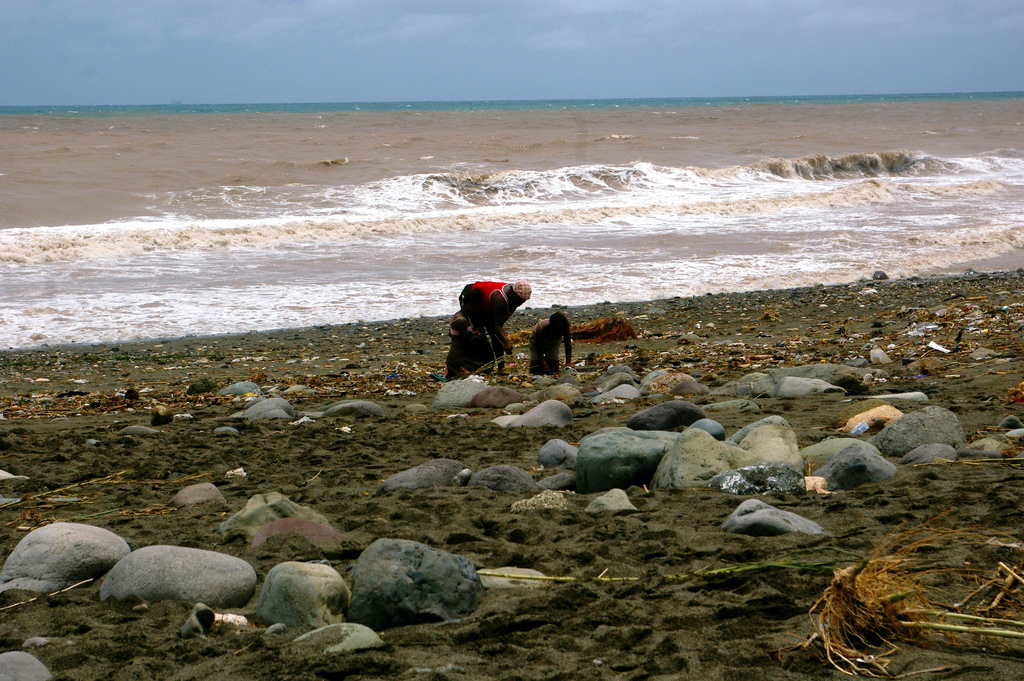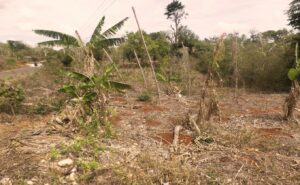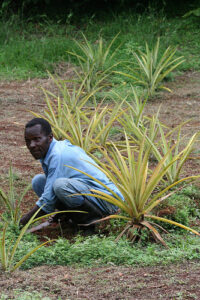“Jamaica’s battle with climate change”
October 7th, 2015Jamaica is in a race against the effects of climate change, writes  Advira Shand, 25, a Commonwealth Correspondent from Manchester in Jamaica, with impact already evident in health, agriculture and the economy.
Advira Shand, 25, a Commonwealth Correspondent from Manchester in Jamaica, with impact already evident in health, agriculture and the economy.
Jamaica is still awash with national pride and celebration following the 2015 IAAF World Championships where its athletes, led by the famous Usain Bolt, dominated the track and field arena. However, Jamaican policy-makers have been lagging behind in the race against climate change.
Like most Caribbean states, Jamaica is extremely vulnerable to the distasteful impacts of climate change that has been wreaking havoc within the Caribbean region. As such, Jamaica is in dire need of swift and effective responses geared towards combating climate change.
 Agriculture plays an integral role in Jamaica’s economic development, as it provides Jamaica with a substantial portion of its foreign earnings and is the main source of employment within Jamaica’s rural communities. Jamaica’s farming, fisheries, dairy and poultry sectors have become increasingly vulnerable to frequent and severe hurricanes and droughts, which are all products of climate change.
Agriculture plays an integral role in Jamaica’s economic development, as it provides Jamaica with a substantial portion of its foreign earnings and is the main source of employment within Jamaica’s rural communities. Jamaica’s farming, fisheries, dairy and poultry sectors have become increasingly vulnerable to frequent and severe hurricanes and droughts, which are all products of climate change.
These unappealing climate events have cost numerous Jamaicans their jobs, brought about stark increases in the cost of food, and caused extensive damage to Jamaica’s arable land, agricultural equipment and infrastructure. According to the Food and Agriculture Organization (2013), Jamaica’s coffee industry suffered immensely as a result of climate change with three major climate events, namely Hurricanes Ivan (2004), Dean (2007) and Tropical Storm Gustav (2008), affording it approximately $4,972 million Jamaican dollars in losses.
It is the unwavering view among many that Jamaica is the ideal locale for individuals who yearn to be caressed by refreshing sea breeze and mesmerized by miles of white sandy beaches. Unfortunately climate change, which has been ‘working overtime’ to unleash a barrage of its unsavory effects, has been damaging Jamaica’s environment. As a result of increases in the severity and frequency of hurricanes, storms and droughts, there has been extensive beach erosion, widespread loss of wildlife, extensive damage to wetland and marine ecosystems, increased soil and coastline erosion, severe coral bleaching, and loss of tropical forests. In light of these impacts that climate change is having on Jamaica’s environment, many individuals employed within the tourism sector have lost their jobs and many small entrepreneurs within the hospitality sector are struggling to reap meaningful gains on their investments.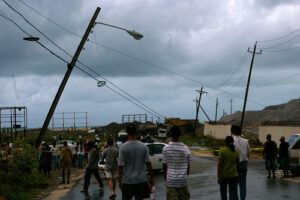
The rapid spreading of the chikungunya virus among the Jamaican populace, especially during late 2014, made it quite evident that climate change has been freelancing in other areas within Jamaica. The chikungunya virus, which erupted as a result of the unwelcome effects of climate change, is just one of the many health issues that Jamaica has and will encounter as a result of climate change. Increases in weather events such as storms, hurricanes and drought brought on by climate change will undoubtedly increase in food- borne and water-borne diseases, expose Jamaicans to the risk of losing their lives, inspire interruptions in health care services, lessen the availability of clean water and food, and engineer numerous cases of stomach and intestinal illnesses.
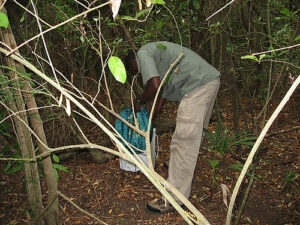 It is quite disheartening seeing such a resilient state as Jamaica timidly limping along the field behind other states in the race to free the international system from the clutches of climate change. Yet Jamaica must be commended for its efforts in undertaking a series of initiatives geared towards reducing emissions and adapting to climate change. The Ministry has also sought to assist farmers in dealing with the effects of climate change through the Arable Lands Irrigated and Growing for the Nation initiative. Through this initiative “four irrigation districts and 5153 acres of previously idle land” have been prepared for use. The Rural Agricultural Development Authority has also been actively responding to climate change by furnishing Jamaican farmers with information regarding disaster risk, pest management for various agricultural crops, and strengthening climate data collection.
It is quite disheartening seeing such a resilient state as Jamaica timidly limping along the field behind other states in the race to free the international system from the clutches of climate change. Yet Jamaica must be commended for its efforts in undertaking a series of initiatives geared towards reducing emissions and adapting to climate change. The Ministry has also sought to assist farmers in dealing with the effects of climate change through the Arable Lands Irrigated and Growing for the Nation initiative. Through this initiative “four irrigation districts and 5153 acres of previously idle land” have been prepared for use. The Rural Agricultural Development Authority has also been actively responding to climate change by furnishing Jamaican farmers with information regarding disaster risk, pest management for various agricultural crops, and strengthening climate data collection.
Jamaica has not only sought to reduce its energy bill but also to lower its emission levels through the erection of Wigton Windfarm in Manchester. In addition, the Ministry of Science, Technology, Energy & Mining launched the Energy, Efficiency & Conservation Programme in 2012, seeking to improve Jamaica’s energy efficiency and conservation levels.
It is also quite important to note that Jamaica has garnered enormous support from international and regional bodies towards its adaption and mitigation efforts. Through the United Nations Development Programme, Jamaica in collaboration with the Global Environment Programme has provided rural communities with tools needed to “bolster farming areas against the effects of climate change”, educating farmers about the effects of climate change and how to cope with them.
The race to rid the international community of climate change will be a long tedious one with no room for ‘water breaks’ and Jamaica, like other states, has an important part to play. It is therefore incumbent upon Jamaica to adopt a few of Usain Bolt’s winning strategies in an effort to advance more swiftly toward the finish line.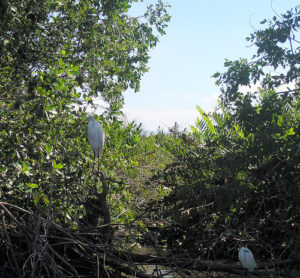
References
Crossan, A. (2014) Jamaica declares state of emergency to try to stop the spread of the painful chikungunya virus. Retrieved on the 11th of September, 2015, from www.pri.org
Mendes- Franco, J. (2014) The chikungunya virus brings Jamaica to its knees. Retrieved on the 16th of September 2015, from globalvoicesonline.org
Myers, G. (2015) Wigton Windfarm earns $500 million. Retrieved on the 12th of September 2015, from www.jamaicaobserver.com
Patterson, C. (2015) US$200 million invested in renewable energy projects. Retrieved on the 12th of September, 2015, from jis.gov.jm
Selvaraju, R., et al. (2013) Climate change and agriculture in Jamaica. Retrieved on the 12th of September 2015, from www.fao.org
The Jamaica Observer (2015) $15 million allocated to climate change pilot. Retrieved on the 16th of September, 2015, from www.jamaicaobserver.com
The London School of Economics and Political Science & Grantham Research Institute on Climate change and the Environment (2015) Approach to climate change. Retrieved on the 15th of September, 2015, from www.lse.ac.uk
The University of the West Indies (n.d.) Climate Change and Agriculture. Retrieved on 15th of September, 2015, from www.mona.uwi.edu
United Nations Development Programme in Jamaica (2014) Coping with climate change. Retrieved on the 14th of September 2015, from www.jm.undp.org
United States Environmental Protection Agency (2013) Human Health. Retrieved on the 10th of September, 2015, from www.epa.gov
Wedder, D. (n.d.) Climate change impacts on Jamaica’s biodiversity. Retrieved on the 12th of September 2015, from www.nepa.gov.jm
Photo credits
Feature photo credit: IMGP7678.JPG via photopin (license), Usain Bolt via photopin (license),Banana farm, Manchester, Jamaica – Advira Shand, Hurricane damage – IMGP7673.JPG via photopin (license), Fighting chikungunya virus – Chikungunya via photopin (license), Alternate crops – Pineapple guy via photopin (license), Protected shoreline – P1180007-Some of the locals on the Black River via photopin (license)
…………………………………………………………………………………………………
About me:
It is my desire to inspire growth among youths and within the region I inhabit. I have a Bachelor’s degree in International Relations and serve as a Managing Partner at WAGS Construction. It is my intention to undertake graduate studies that will help me in my quest to occupy a position within my country where I can assist in crafting policies that will fuel development within developing states.
…………………………………………………………………………………………………
Opinions expressed in this article are those of the author and do not necessarily represent the views of the Commonwealth Youth Programme. Articles are published in a spirit of dialogue, respect and understanding. If you disagree, why not submit a response?
To learn more about becoming a Commonwealth Correspondent please visit:
http://www.yourcommonwealth.org/submit-articles/commonwealthcorrespondents/
………………………………………………………………………………………………
